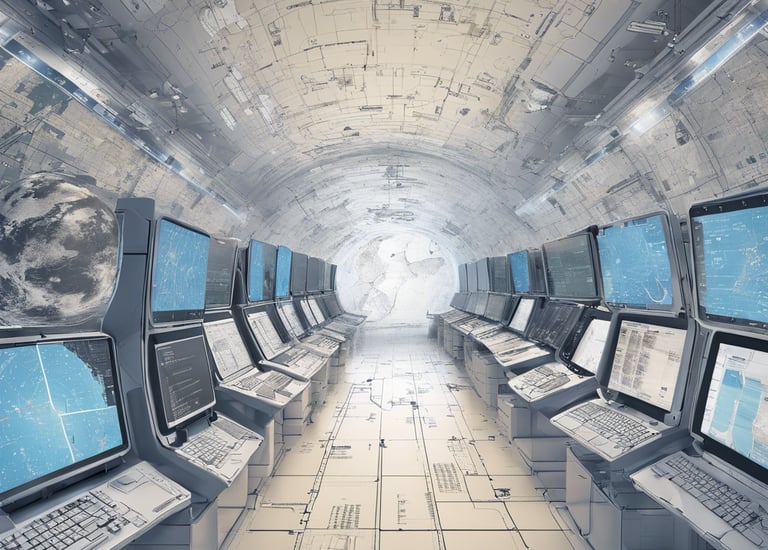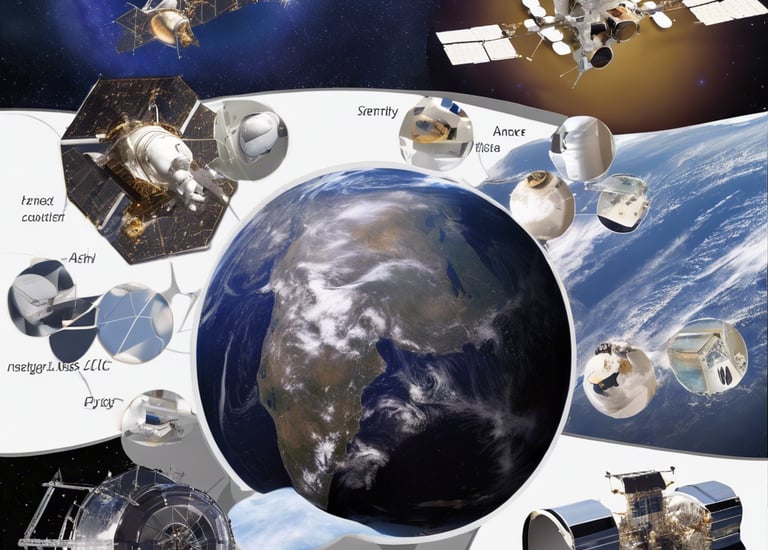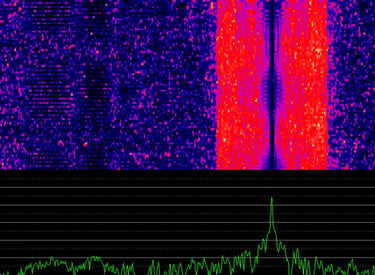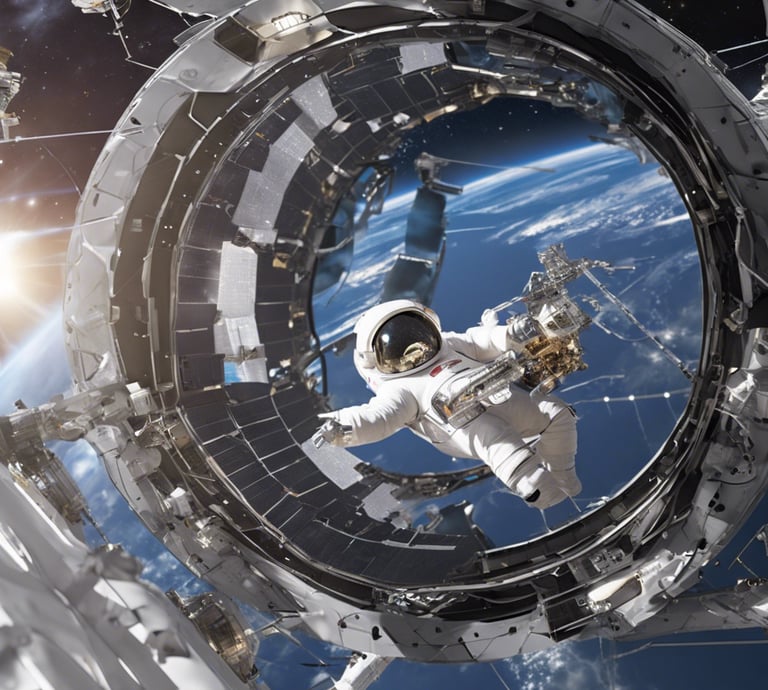Sr Space Sys Engr | M' IEEE IET PEC | Project Mgr | Team Lead | Space Sys & Ground Ops Consultant | ICT R&D Advisor | Digital Twin SATCOM Trainer | EdTech Outreach | SpaceTech Writer
Evolutionary Space Systems & Empowering Young Minds
Seasoned Space System Engineer with Robust Background in Spacetech R&D
CubeSat | Constellations | SDR | Space | Missions | Constellations | Connectivity | Artificial Intelligence (AI) | Machine Learning (ML) | Interplanetary | Mars | 5G | 6G | Moon | Earth | Connectivity | Debris | Spacecraft | Lightning | Charging |
The development of CubeSats and constellations of small satellites has revolutionized space missions, enabling greater connectivity and communication capabilities through software-defined radio (SDR) technology. These advancements have opened up new possibilities for interplanetary exploration, with missions to Mars, the Moon, and beyond becoming increasingly feasible. Furthermore, the use of 5G and the upcoming 6G networks in space will greatly enhance internet connectivity for spacecraft and facilitate lightning-fast data transmission. However, as the number of satellites in orbit increases, concerns about space debris and the need for sustainable spacecraft charging solutions have become more pressing. Nevertheless, the future looks bright for space exploration, with these innovations paving the way for groundbreaking discoveries and advancements in our understanding of the universe.
Space Projects
Exploring innovative space systems and empowering young minds through outreach.


Innovative Systems Development
Developing cutting-edge space technologies for future exploration missions.


Space Data Analysis
Analyzing space data to drive insights and strategic recommendations.




Academia Collaboration
Collaborating with academia to advance space technology research and development.
Trends Analysis
Conducting trends analysis for early adoption of new space technologies.
→
→
→
→
Founder, Techpreneur & Lead Consultant
Key Contributions and Projects
Dr. Jaffer has led and contributed to many flagship space projects:
CubeSat system testbeds: He developed advanced CubeSat engineering testbeds for 5G/6G space labs and led SDR-based satellite emulator development for mission validation.
LEO mission operations: He implemented mission command-and-control centers and network-monitoring systems for low-Earth-orbit satellites, and directed comprehensive test campaigns for LEO spacecraft.
LiNSAT lightning satellite: His Ph.D. research focused on LiNSAT, an Austrian nano-satellite for VHF lightning detection; he designed the space and ground segments for this mission.
Navigation satellite program: He contributed to the payload design of Pakistan’s National Navigation Satellite System (PNSS), mentoring student teams on high-precision GNSS payloads.
Space situational awareness: He proposed constellations of small satellites for air-traffic surveillance (ADS-B) and for space-debris monitoring, using orbital simulations and trajectory optimization to ensure global coverage. (These designs illustrate his focus on combining radio science with AI/ML to enhance SATCOM and sensing capabilities.)
He has secured competitive funding and led research grants to support these projects. For example, he received an OeAD (Austria) Ernst Mach follow-up grant for space R&D, and he established MOUs between his institutions and space agencies.
Bridging Research and Innovation
Dr. Ghulam Jaffer has built his career on translating cutting-edge research into practical space and telecom solutions. He is driven by a mission to harness academic insights for real‐world impact, fostering sustainable innovation in aerospace and telecommunications. With a background that spans leading research institutes and industry initiatives, he focuses on connecting “the gap between the cosmos and Earth’s systems” through advanced space systems and network technologies. In his view, technology should prioritize human and environmental well-being – a philosophy reflected in his pursuit of knowledge-driven solutions that respect the space environment.
Professional Background
Dr. Jaffer brings over two decades of experience in academia, government research, and industry. He earned his Ph.D. in Electrical Engineering (Satellite System Engineering) from Graz University of Technology (TU Graz), Austria. Following his doctorate, he worked as a Postdoctoral Research Associate in Space System Engineering at the Interdisciplinary Centre for Security, Reliability and Trust (SnT) at the University of Luxembourg, Luxembourg. He also served as a Visiting Assistant Professor at KU Leuven’s Department of Electrical Engineering (ESAT) in Belgium. Earlier in his career he was the founding Head of the Space Science department at the Institute of Space Technology (IST), Islamabad, where he established new undergraduate and graduate space-science programs and labs. (He began his academic journey with a master’s in Space Science from the University of Punjab and built telecommunications labs at GC University, Lahore) This combined record of university teaching, research leadership and international collaboration underpins his role today as an entrepreneur and consultant in next-generation space systems.
Areas of Expertise
Dr. Jaffer’s technical focus covers the full spectrum of modern small-satellite and communications systems. His expertise includes:
Small-satellite systems engineering: Design and integration of CubeSat subsystems (power, comms, ADCS, etc.) and scientific payloads.
Satellite navigation and orbital mechanics: Mission planning and trajectory optimization for constellations (e.g. HEO/GEO navigation, formation flying) .
Space environment monitoring: Space weather sensing, space debris analysis and payload instrumentation for remote sensing missions.
Ground segment and gateway networks: Architectures for multi-site ground stations, virtual and Internet-to-orbit gateways, and distributed network operations.
5G/6G non-terrestrial networks (NTN): Integration of satellite constellations with 5G/6G SATCOM, including software-defined radio (SDR) platforms for space‐air‐ground connectivity.
Each of these areas combines advanced research and practical implementation. For example, Dr. Jaffer has worked on software-defined radio emulators and hardware for satellite communications, and on GPS/GNSS augmentation using LEO/MEO constellations. He also applies AI/ML and systems engineering to optimize satellite subsystem performance and constellation design.
Thought R&D Leadership
Dr. Jaffer is active in the scholarly community as well as industry. He serves as a peer reviewer for leading journals such as IEEE Sensors Journal, IEEE Aerospace and Electronic Systems Magazine, Aerospace Science and Technology and Advances in Space Research. He has presented at top conferences (IAC, AIAA, AGU, etc.) and co-authored numerous journal and conference papers on satellite navigation, space weather, and SDR. As an educator and mentor, he has supervised multiple Ph.D. and MPhil students working on small-satellite subsystems and advanced communications.
Vision for Space Innovation
Looking ahead, Dr. Jaffer emphasizes sustainable growth in the new space economy. He advocates harnessing emerging technologies wisely – for example, using AI-enhanced networks and green propulsion – so that space systems advance human welfare without harming the space environment. He often speaks of “discovering digital solutions that prioritize human health and respect the delicate balance of the space environment”. This vision underscores his commitment to responsible exploration and to bridging scientific research with societal needs.
Industrial Arena
In the industry arena, Dr. Jaffer is the Founder and Lead Consultant of “EDGJ®”, a Luxembourg-based consultancy. Through EDGJ he provides training and strategic advisory services in satellite systems, digital twin integration, and 5G/6G technologies. His firm collaborates with satellite developers, mission operators and aerospace organizations to translate research into practical solutions. In these roles he advises startups and R&D labs on space-tech investments and partnerships, drawing on his international network (including projects with TU Graz, EXA Ecuador, and others) to foster global innovation.
6G Space Systems
Seasoned space system engineer with over 15 years of experience in spacetech R&D. Passionate about empowering academia and newspace for informed technical decisions.




